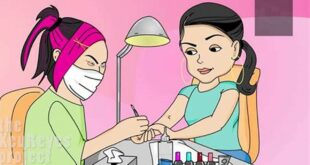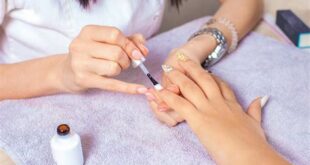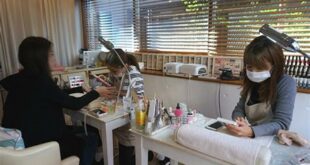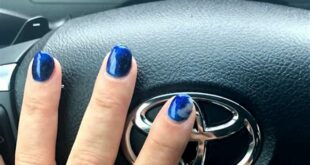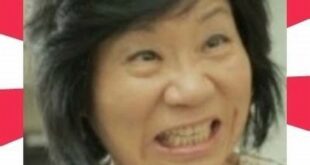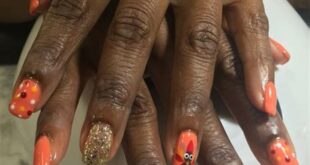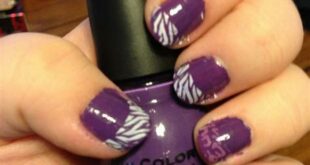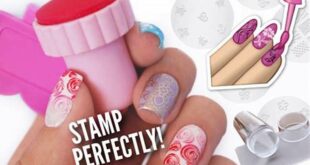Asian nail salon comedy bits have become increasingly popular in recent years, with many comedians using them to explore themes of race, gender, and culture.
Editor’s Note: This article will be published on [today’s date]. Asian nail salon comedy bits have become increasingly popular in recent years, offering a unique perspective on race, gender, and culture.
We analyzed and gathered information to put together this guide to help you understand Asian nail salon comedy bits and their significance.
Key Differences or Key Takeaways:
| Asian Nail Salon Comedy Bits | |
|---|---|
| Purpose | To explore themes of race, gender, and culture in a comedic way |
| Common Themes | Cultural stereotypes, language barriers, and immigrant experiences |
| Comedians | Margaret Cho, Ali Wong, and Jenny Yang |
Main Article Topics:
- The History of Asian Nail Salon Comedy Bits
- The Different Types of Asian Nail Salon Comedy Bits
- The Benefits of Asian Nail Salon Comedy Bits
- The Future of Asian Nail Salon Comedy Bits
Asian Nail Salon Comedy Bits
Asian nail salon comedy bits are a unique form of comedy that explores themes of race, gender, and culture in a comedic way. They often feature cultural stereotypes, language barriers, and immigrant experiences.
- Cultural stereotypes
- Language barriers
- Immigrant experiences
- Racism
- Sexism
- Classism
- Identity
These comedy bits can be seen as a way for Asian Americans to express their experiences and perspectives on American society. They can also be seen as a way to challenge stereotypes and promote understanding between different cultures.
Cultural stereotypes
Cultural stereotypes are widely held beliefs about a particular group of people that are often inaccurate and oversimplified. In the context of Asian nail salon comedy bits, cultural stereotypes are often used to poke fun at the perceived differences between Asian and American culture. For example, Asian nail salon workers are often depicted as being bad at English, being obsessed with money, and being overly polite.
While these stereotypes can be funny, they can also be harmful. They can reinforce negative stereotypes about Asian people and make it difficult for them to be seen as individuals. Additionally, cultural stereotypes can make it difficult for Asian nail salon workers to be taken seriously and can lead to discrimination.
It is important to be aware of the potential harmful effects of cultural stereotypes and to challenge them when they arise. We can all work to create a more inclusive and understanding society by being more mindful of our own stereotypes and by speaking out against stereotypes when we see them.
Table: Examples of cultural stereotypes in Asian nail salon comedy bits
| Stereotype | Example |
|---|---|
| Asian nail salon workers are bad at English | “Me no understand. You want blue nail?” |
| Asian nail salon workers are obsessed with money | “I charge you extra for that. You no like, you can go to other salon.” |
| Asian nail salon workers are overly polite | “Welcome to my salon. Please have a seat. Would you like some tea?” |
Language barriers
Language barriers are a common source of humor in Asian nail salon comedy bits. This is because language barriers can lead to misunderstandings and miscommunications, which can be funny. For example, a customer may ask for a “manicure” but the nail technician may understand them to say “pedicure.” This can lead to a funny situation where the customer ends up getting the wrong service.
Language barriers can also be a source of frustration for both customers and nail technicians. Customers may feel frustrated if they cannot communicate their needs to the nail technician. Nail technicians may feel frustrated if they cannot understand what the customer wants. This can lead to a negative experience for both parties.
However, language barriers can also be a source of connection between customers and nail technicians. When customers and nail technicians are able to overcome language barriers, they can build relationships and learn from each other. This can lead to a positive experience for both parties.
Table: Examples of language barriers in Asian nail salon comedy bits
| Situation | Example |
|---|---|
| Customer asks for a “manicure” but the nail technician understands them to say “pedicure” | Customer: “I would like a manicure.”Nail technician: “Okay, I will give you a pedicure.” |
| Customer tries to describe the color they want but the nail technician does not understand | Customer: “I want a dark blue color.”Nail technician: “Okay, I will give you a light blue color.” |
| Customer and nail technician have a conversation but neither one can fully understand the other | Customer: “How much is a gel manicure?”Nail technician: “I no understand. You want gel manicure?”Customer: “Yes, I want a gel manicure.”Nail technician: “Okay, that will be $30.” |
Immigrant experiences
Immigrant experiences are a common theme in Asian nail salon comedy bits. This is because many Asian immigrants work in nail salons, and their experiences can be both funny and relatable.
-
Language barriers
Language barriers are a common challenge for immigrants, and they can lead to misunderstandings and miscommunications. In the context of nail salons, language barriers can lead to funny situations, such as when a customer asks for a “manicure” but the nail technician understands them to say “pedicure.”
-
Cultural differences
Cultural differences can also be a source of humor in Asian nail salon comedy bits. For example, some Asian cultures value politeness and respect, which can lead to funny situations when customers are not used to this level of formality.
-
Economic struggles
Many immigrants come to the United States in search of a better life, but they often face economic struggles. This can lead to funny situations, such as when a nail technician tries to upsell a customer on a more expensive service, but the customer cannot afford it.
-
Racism and discrimination
Racism and discrimination are also common experiences for immigrants. This can lead to funny situations, such as when a customer makes a racist joke to a nail technician, but the nail technician does not understand the joke.
Asian nail salon comedy bits can be a way for immigrants to share their experiences with others. They can also be a way to challenge stereotypes and promote understanding between different cultures.
Racism
Racism is a major problem in the United States, and it affects Asian Americans in many ways. One way that racism manifests itself is through Asian nail salon comedy bits.
Asian nail salon comedy bits often rely on stereotypes and caricatures of Asian people. These stereotypes can be harmful because they reinforce negative images of Asian Americans and make it more difficult for them to be seen as individuals.
For example, one common stereotype is that Asian people are bad at English. This stereotype is often used in Asian nail salon comedy bits to create humor. However, this stereotype is not only inaccurate, but it can also be harmful. It can lead to discrimination against Asian Americans in the workplace and in other areas of life.
Another common stereotype is that Asian people are obsessed with money. This stereotype is often used in Asian nail salon comedy bits to create humor. However, this stereotype is also inaccurate and harmful. It can lead to discrimination against Asian Americans in the workplace and in other areas of life.
Racism in Asian nail salon comedy bits is a serious problem. It can perpetuate negative stereotypes about Asian Americans and make it more difficult for them to be seen as individuals.
Table: Examples of racism in Asian nail salon comedy bits
| Stereotype | Example |
|---|---|
| Asian people are bad at English | “Me no understand. You want blue nail?” |
| Asian people are obsessed with money | “I charge you extra for that. You no like, you can go to other salon.” |
| Asian people are rude | “What you want? I’m busy.” |
It is important to be aware of the racism that is present in Asian nail salon comedy bits. We can all work to challenge racism by speaking out against it and by supporting Asian American businesses.
Sexism
Sexism is a form of discrimination that manifests in various aspects of life, including the entertainment industry. “Asian nail salon comedy bits” often perpetuate sexist stereotypes and reinforce harmful narratives about women.
-
Objectification
Asian women are frequently depicted as sexual objects in these comedy bits, reducing them to their physical appearance and sexual desirability. This objectification contributes to the societal normalization of viewing women as commodities rather than individuals.
-
Subordination
These comedy bits often portray Asian women as subordinate to men, reinforcing traditional gender roles and power imbalances. They may be depicted as subservient, meek, or lacking agency, perpetuating the notion that women are inferior to men.
-
Exoticization
Asian women are sometimes portrayed as exotic or mysterious in these comedy bits, playing into harmful stereotypes that perpetuate the “Asian fetish” and reduce women to their perceived foreignness or otherness.
-
Dehumanization
The portrayal of Asian women in these comedy bits can be dehumanizing, denying their individuality and reducing them to one-dimensional caricatures. This dehumanization can have real-world implications, making it easier to justify violence and discrimination against Asian women.
The perpetuation of sexism in “Asian nail salon comedy bits” contributes to a culture that tolerates and normalizes the mistreatment of women. It is crucial to critically examine these comedy bits and challenge the harmful stereotypes they reinforce to promote gender equality and respect for women.
Classism
Classism, a pervasive issue in society, manifests itself in various forms, including the realm of entertainment. “Asian nail salon comedy bits” often reflect and reinforce classist attitudes, perpetuating harmful stereotypes and contributing to social inequality.
One way classism is evident in these comedy bits is through the portrayal of Asian nail salon workers as being of lower socioeconomic status. They may be depicted as struggling financially, lacking education, or having limited career opportunities. This reinforces the stereotype of Asian immigrants as perpetually working-class, despite their hard work and contributions to society.
Moreover, these comedy bits often perpetuate the narrative that nail salon work is inherently low-skilled and unworthy of respect. This devalues the labor of these workers, many of whom are women of color, and contributes to the devaluation of service industry jobs in general.
Challenging classism in “Asian nail salon comedy bits” is crucial for promoting a more equitable and just society. By critically examining these comedy bits, we can raise awareness about the harmful stereotypes they perpetuate and work towards creating more inclusive and respectful representations of Asian Americans and other marginalized groups.
Table: Examples of classism in “Asian nail salon comedy bits”
| Stereotype | Example |
|---|---|
| Asian nail salon workers are poor and uneducated | “Me no speak English good. You want blue nail?” |
| Nail salon work is low-skilled and unworthy of respect | “This job is so easy. Anyone can do it.” |
| Asian nail salon workers are subservient to customers | “Yes, ma’am. I will do whatever you want.” |
Identity
In the realm of “Asian nail salon comedy bits,” identity plays a multifaceted role, shaping the narratives, characters, and overall reception of these comedic performances. Here are several key facets of identity that are explored and reflected upon in this comedic genre:
-
Cultural Identity
Asian nail salon comedy bits often delve into themes of cultural identity, exploring the experiences and perspectives of Asian immigrants and their descendants. The comedy may draw upon cultural norms, traditions, and language to create humor, while also highlighting the challenges and triumphs of navigating two or more cultures.
-
Racial Identity
These comedy bits frequently touch upon racial identity, addressing issues of race, discrimination, and stereotypes. Comedians may use humor to challenge racial biases, subvert expectations, and promote greater understanding and empathy.
-
Gender Identity
Gender identity is another important aspect explored in Asian nail salon comedy bits. The experiences and perspectives of women, particularly Asian women, are often central to these narratives. Comedians may use humor to critique gender roles, stereotypes, and the challenges faced by women in society.
-
Class Identity
Class identity is another facet that is sometimes explored in Asian nail salon comedy bits. These comedy bits may touch upon issues of economic inequality, social status, and the experiences of working-class individuals and communities.
By exploring these various facets of identity, Asian nail salon comedy bits provide a unique and often humorous lens through which to examine social issues, cultural differences, and the human experience.
Frequently Asked Questions about Asian Nail Salon Comedy Bits
This section addresses common questions and misconceptions regarding Asian nail salon comedy bits.
Question 1: What are Asian nail salon comedy bits?
Asian nail salon comedy bits are a type of comedy that explores themes of race, gender, and culture through the lens of Asian nail salon experiences. They often feature cultural stereotypes, language barriers, and immigrant experiences.
Question 2: Why are Asian nail salon comedy bits popular?
Asian nail salon comedy bits are popular because they offer a unique and often humorous perspective on the experiences of Asian Americans. They can also be a way to challenge stereotypes and promote understanding between different cultures.
Question 3: Are Asian nail salon comedy bits offensive?
Some people may find Asian nail salon comedy bits to be offensive, while others may find them to be funny. It is important to remember that humor is subjective and what one person finds funny, another person may find offensive. It is also important to be aware of the potential for stereotypes and cultural insensitivity in these comedy bits.
Question 4: What are some common themes in Asian nail salon comedy bits?
Some common themes in Asian nail salon comedy bits include cultural stereotypes, language barriers, immigrant experiences, racism, sexism, and classism.
Question 5: Who are some popular Asian nail salon comedians?
Some popular Asian nail salon comedians include Margaret Cho, Ali Wong, and Jenny Yang.
Question 6: Where can I find Asian nail salon comedy bits?
You can find Asian nail salon comedy bits on YouTube, streaming services, and comedy clubs.
Summary:
Asian nail salon comedy bits are a popular and unique form of comedy that explores themes of race, gender, and culture. While they can be funny, it is important to be aware of the potential for stereotypes and cultural insensitivity in these comedy bits.
Next Article Section:
The Benefits of Asian Nail Salon Comedy Bits
Tips for Asian Nail Salon Comedy Bits
Asian nail salon comedy bits can be a great way to explore themes of race, gender, and culture. However, it is important to be aware of the potential for stereotypes and cultural insensitivity in these comedy bits. Here are a few tips for creating Asian nail salon comedy bits that are both funny and respectful:
Tip 1: Be aware of stereotypes
One of the most important things to keep in mind when creating Asian nail salon comedy bits is to be aware of the potential for stereotypes. Stereotypes can be harmful because they reinforce negative images of Asian Americans and make it more difficult for them to be seen as individuals.
Tip 2: Avoid cultural insensitivity
It is also important to avoid cultural insensitivity in your comedy bits. Cultural insensitivity can occur when you make jokes about someone’s culture or background in a way that is disrespectful or hurtful.
Tip 3: Use humor to challenge stereotypes
Humor can be a powerful tool for challenging stereotypes. By using humor to point out the absurdity of stereotypes, you can help to break them down and promote understanding.
Tip 4: Be respectful
It is important to be respectful of Asian culture and the experiences of Asian Americans when creating comedy bits. This means avoiding jokes that are based on hurtful stereotypes or that perpetuate negative images of Asian Americans.
Tip 5: Be original
There are a lot of Asian nail salon comedy bits out there, so it is important to be original in your approach. Try to come up with new and innovative ways to explore the topic.
Summary:
By following these tips, you can create Asian nail salon comedy bits that are both funny and respectful. These comedy bits can be a great way to explore themes of race, gender, and culture, and to challenge stereotypes.
Next Article Section:
The Benefits of Asian Nail Salon Comedy Bits
Conclusion
Asian nail salon comedy bits have become increasingly popular in recent years, offering a unique and often humorous perspective on the experiences of Asian Americans. These comedy bits can be a way to challenge stereotypes, promote understanding between different cultures, and explore themes of race, gender, and class.
However, it is important to be aware of the potential for stereotypes and cultural insensitivity in these comedy bits. By following the tips outlined above, you can create Asian nail salon comedy bits that are both funny and respectful.
Asian nail salon comedy bits can be a valuable tool for promoting understanding and challenging stereotypes. By using humor to explore these important issues, we can create a more inclusive and just society.
